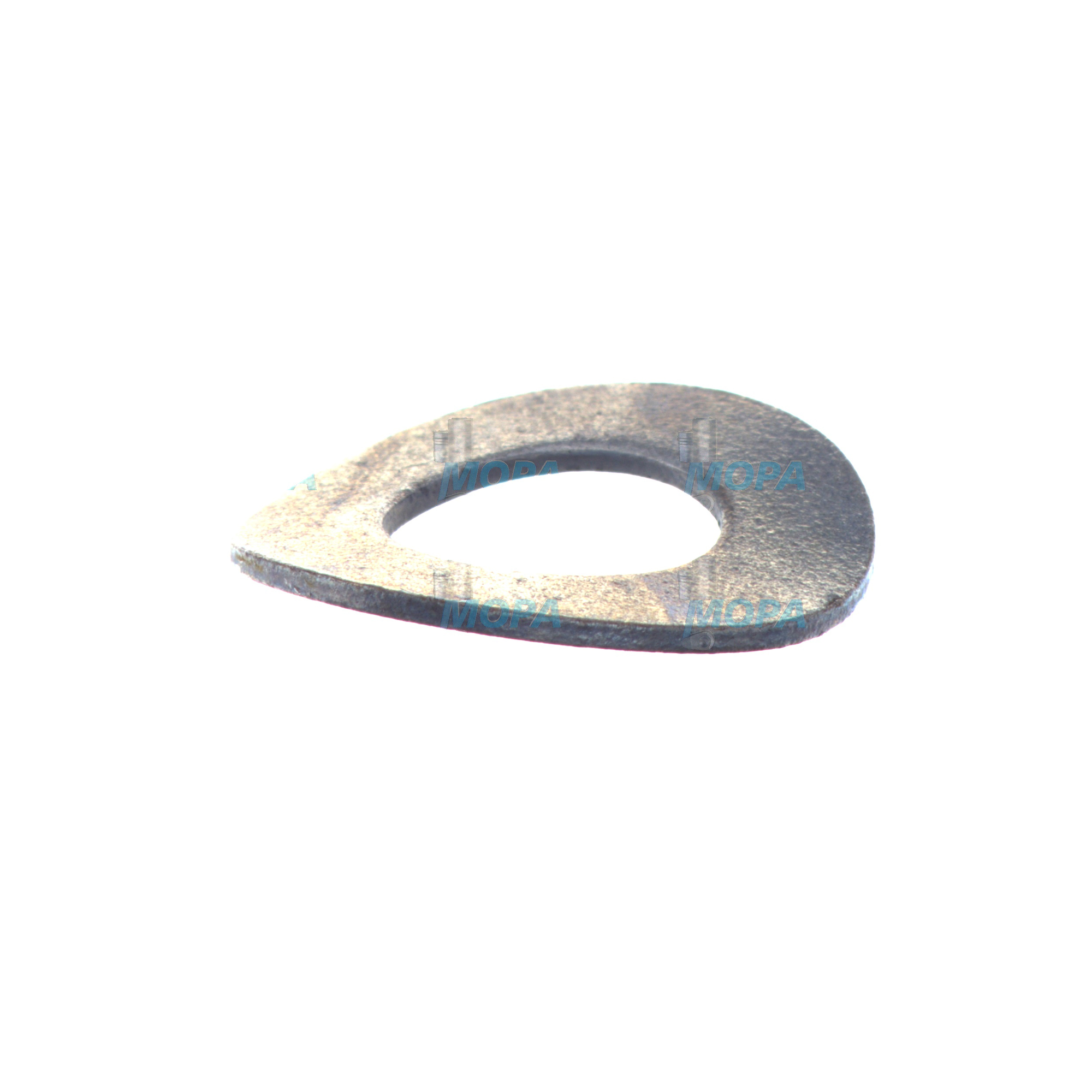SPRING WASHER and Washers for High‑Demand Engine Applications
Washers are small but decisive machine elements used under bolt heads and nuts to distribute load, maintain preload, seal interfaces, and resist loosening. In engines—whether propulsion-grade marine engines or high-output diesel generator sets—washers safeguard the integrity of every bolted joint across the crankcase, cylinder heads, manifolds, mounts, and auxiliary systems. Among them, the SPRING WASHER category provides elastic force that preserves clamp load under vibration and thermal cycling. As a result, washers are fundamental to engine reliability, safety, and lifecycle cost.
Technical function of Washers and SPRING WASHER in diesel engines
A washer’s core job is to control contact conditions in a joint. Flat washers spread the load over a larger bearing surface, protecting softer parent materials and preventing galling. Sealing washers (e.g., copper or bonded types) create a reliable pressure-tight interface for fuel, oil, and cooling circuits. Locking and spring types add resistance to rotation and preload loss. In particular, a SPRING WASHER in a diesel engine joint supplies elastic compliance that compensates for relaxation, differential thermal expansion, and micro-settling of surfaces after torqueing.
In real engine duty, joints face broad temperature swings, high-frequency vibration, and pulsating pressure. Without the right washer, clamp load can drop below safe thresholds, leading to movement, fretting, and ultimately leakage or fastener failure. Proper selection spans split lock (DIN 127), high-collar spring washers (DIN 7980) under narrow bearing surfaces, disc spring (Belleville) washers (DIN 2093) for high preload with compact envelope, flat washers (DIN 125/ISO 7089/7090) for precise load distribution, and soft-metal sealing washers (DIN 7603) for fluid systems.
How a SPRING WASHER maintains preload in a marine engine
On a marine engine, cyclic torsion and hull-borne vibration challenge every bolted interface. A SPRING WASHER for marine engine service maintains force by acting as a miniature spring in series with the bolt. Its deflection absorbs joint settling and thermal contraction, keeping the fastener in its elastic range and preserving torque retention. Material selection—such as tempered spring steel with anti-corrosion coatings or stainless grades for humid engine rooms—ensures consistent spring characteristics over thousands of operating hours. For high-preload, limited-space locations (e.g., turbocharger brackets, resilient mounts), disc spring stacks can be configured in series/parallel to tune force–deflection and ensure stable clamp load under shock.
- · Distributes load to prevent embedding and surface damage.
- · Maintains bolt preload under vibration and heat cycles.
- · Provides locking action to resist rotational loosening.
- · Enables reliable sealing in fuel, lube oil, and coolant circuits.
- · Adapts to materials and conditions via steel, stainless, copper, and alloy options.
- · Aligns with recognized norms (e.g., DIN 127, DIN 7980, DIN 2093, DIN 7603) for predictable behavior.
Importance of Washers for reliable engine operation
Washers are a primary control point for bolt performance and joint stability. If the wrong type is used—or if a SPRING WASHER loses elastic properties due to fatigue, corrosion, or overheating—bolt preload falls. The consequences cascade: joint slip, misalignment, increased vibration, fretting corrosion, and leakage at pressurized interfaces. In cylinder head assemblies, this can mean gasket distress; in exhaust systems, hot gas leaks that damage nearby components; in fuel lines, weeping that risks contamination and fire hazards. Over time, reduced preload accelerates thread wear and may cause bolt breakage during transient events such as cold starts or load steps.
Routine condition checks (visual inspection for flattening, discoloration, cracking, or pitting) and adherence to torque-and-angle procedures help extend joint life. When replacing washers, matching geometry (OD/ID, thickness), hardness, and spring characteristics is essential to retain designed clamp force, especially in high-temperature areas like turbochargers and manifolds.
Advantages of OEM spare parts suitable for Washers and SPRING WASHER
For engines where uptime is mission-critical, selecting OEM spare parts suitable for washers—particularly the SPRING WASHER used in diesel engine and marine engine joints—ensures that materials, heat treatment, and dimensional tolerances meet the intended joint design. The result is consistent preload behavior, predictable relaxation rates, and compatible hardness relative to mating surfaces.
Why this matters for performance, reliability, budget, and service life:
- · Performance: Correct spring curves and surface finishes preserve torque retention and vibration stability.
- · Reliability: Verified metallurgy and coatings resist corrosion, creep, and embrittlement in hot zones.
- · Budget: Stable joints reduce rework, leakage-related damage, and unplanned stoppages.
- · Service life: Dimensional accuracy and calibrated elasticity slow fretting and thread fatigue across overhaul intervals.
- · Compliance: Adherence to specifications maintains alignment with the engine maker’s tightening schemes and service bulletins.
- · Interchangeability: Consistent OD/ID/thickness and standardized forms simplify inventory and maintenance planning.
In short, SPRING WASHER OEM parts deliver the repeatability and durability required for critical bolted joints throughout the powertrain and auxiliaries.
MOPA as your partner for OEM parts: SPRING WASHER and Washers
MOPA supports purchasers, shipowners, and technical managers with a focused portfolio of OEM spare parts suitable for washers—covering SPRING WASHER solutions, flat washers, disc springs, and sealing washers for diesel and gas engines. Customers rely on MOPA for speed in sourcing, consistent quality across batches, and security in international trade. From urgent AOG-like marine calls to scheduled dockyard overhauls, MOPA helps you specify the correct washer form, material, and coating for each joint—ensuring torque retention and leak-tight performance.
Whether you need a SPRING WASHER for marine engine mountings, disc spring stacks for turbocharger brackets, or copper sealing washers for high-pressure fuel lines, MOPA delivers OEM parts with full traceability and documentation to support your maintenance strategy.
Conclusion: SPRING WASHER and washers that protect engine uptime
Washers—and especially the SPRING WASHER families used in diesel engine and marine engine assemblies—are essential to joint integrity, safety, and long service life. Selecting OEM spare parts suitable for washers safeguards preload, prevents leaks, and reduces lifecycle cost by minimizing rework and downtime.
Partnering with MOPA streamlines procurement of SPRING WASHER OEM parts and related washer types, ensuring the right specification reaches your site quickly and reliably.




